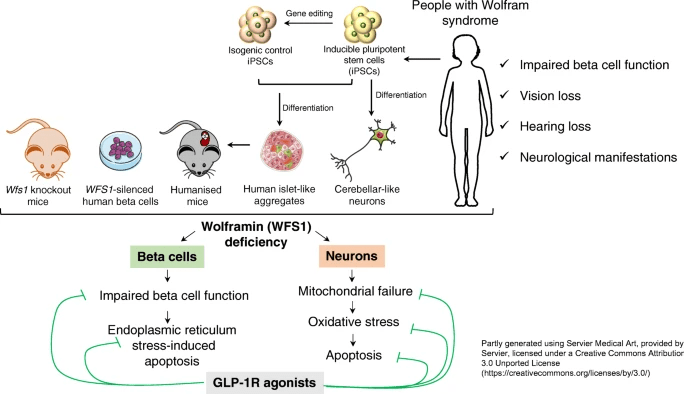On March 30, Cris Brown, BA and Fumihiko Urano, MD, PhD of Urano Lab, alongside colleagues from Belgique, Belgium and Italy, had their article titled “GLP-1R agonists demonstrate potential to treat Wolfram syndrome in human preclinical models,” published in Diabetologia.
Wolfram syndrome is a rare autosomal recessive disorder that commonly manifests itself in the form of diabetes mellitus, optic nerve atrophy, central diabetes insipidus, sensorineural deafness, urinary tract problems and progressive neurologic difficulties. The disease is caused by pathogenic variants within the wolframin (WFS1) gene.
Due to the ongoing need for a treatment for Wolfram syndrome, the authors have aimed “to evaluate the therapeutic potential of glucagon-like peptide 1 receptor (GLP-1R) agonists under WFS1 deficiency with a particular focus on human beta cells and neurons.”
By comparing the effects of GLP-1R agonists in mice and human preclinical models with Wolfram syndrome, their research provides evidence supporting that GLP-1R agonists on WFS1-deficient human pancreatic beta cells and neurons are beneficial. Concluding that “these drugs may be considered as a treatment for individuals with Wolfram syndrome.”

Gorgogietas, V., Rajaei, B., Heeyoung, C. et al. GLP-1R agonists demonstrate potential to treat Wolfram syndrome in human preclinical models. Diabetologia 66, 1306–1321 (2023). https://doi.org/10.1007/s00125-023-05905-8